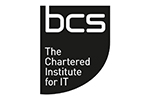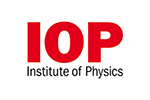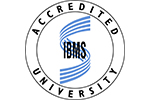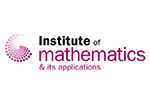The School of Science and Technology is an exciting multidisciplinary environment for learning, teaching and research, with some of the best facilities in the UK.
We specialise in biosciences, chemistry, computing and technology, engineering, forensic science, mathematics, physics and sport science. This mix of traditional and modern subjects encourages and inspires future innovators. We pride ourselves on our high-quality teaching that gives our students the maximum chance to develop the practical, hands-on skills employers are looking for.
Our students leave us inspired by what they have learned, proud of their achievements and believing they have had the ideal preparation for their future lives and careers.
Find your course
Open days and campus tours
Visiting on an open day is the perfect way to see for yourself what makes life and learning at NTU so special. We're running open days on the following dates:
Undergraduate study
- Saturday 11 October 2025
- Saturday 15 November 2025
- Saturday 6 December 2025
Our academic departments
Department of Biosciences
Welcome to the Department of Biosciences. We deliver innovative teaching and research in subjects including biomedical science, microbiology, biochemistry and pharmacology, with a vibrant postgraduate and PhD research community.
Department of Chemistry
Welcome to chemistry at NTU, part of the Department of Chemistry and Forensic Science. Our courses are taught in modern, innovative teaching spaces, offering excellent career prospects, including accreditation by The Royal Society of Chemistry.
Department of Computer Science
Welcome to the Computer Science Department at NTU. The department combines internationally significant research with an outstanding record for teaching excellence. Our state-of-the-art facilities and career-focused approach to course design provide the right conditions for students to succeed in their chosen fields.
Department of Engineering
The Department of Engineering was launched in 2017 with a vision to develop engineers that will shape the future. We are investing in our staff, facilities, and working environment in order to achieve our vision.
Department of Forensic Science
Forensic science is an exciting, industry-led subject area which uses science to investigate legal questions. Practitioners may work in a variety of roles and contribute to an investigation either through direct contact with the crime scene, the evidence or through opinions based on their expertise in a particular subject area.
Department of Mathematics
Our portfolio of courses is diverse and popular, covering foundation level through to a suite of BSc degrees, integrated Masters, postgraduate taught and PhD opportunities. The link between teaching and research manifests itself in enhanced 'hands-on' research opportunities for our students.
Department of Physics
Welcome to the physics team, part of the Department of Physics and Mathematics at Nottingham Trent University. We are dedicated to delivering outstanding and pioneering taught courses and world-leading, impactful research in the areas of physics, mathematics and engineering.
Department of Sport Science
Our department addresses current and contemporary issues within sport, exercise and physical activity in world-class facilities that students, researchers and industry can gain access to. Our courses encourage students to put theory into practice by providing multiple opportunities for hands-on learning to enhance the student experience.
Meet our academic staff
Research in the School of Science and Technology
PhD studentships
Come and be a part of our world-leading research, we'll support you through our researcher support programme that priorities your professional development, to be a future innovator.
You can browse our studentships here.
Research Excellence Framework (REF) 2021
In the latest Research Excellence Framework (REF) 2021, 86% of NTU's research impact was assessed to be either world-leading or internationally excellent. The overall quality of each Unit of Assessment NTU submitted to REF in 2021 also saw an improvement from the previous REF in 2014.
Our research centres
Centre for Systems Health and integrated Metabolic Research (SHiMR)
SHiMR is structured around four themes covering various aspects of human health and chronic diseases, including cancers which are treatable but not curable, diabetes and other inflammatory conditions.
Centre for Computer Science and Informatics (CIRC)
Harnessing enabling technologies ranging from machine learning, AI, and advanced display technologies, to intelligent sensors and robotics to drive advances for individuals and society.
Imaging, Materials and Engineering Centre (IMEC)
To solve modern engineering problems requires an interdisciplinary approach. At IMEC this principle is embedded in the way we do research in the applied sciences and engineering, with our strengths in imaging, materials, and smart and medical technologies.
Sport, Health and Performance Enhancement Research Centre (SHAPE)
Providing a vibrant research environment to investigate the biological, physical, psychological and societal impact of sport and exercise for health, well-being and human performance
The John van Geest Cancer Research Centre
The Centre has a strong research base which aligns to the Health and Wellbeing strategic theme, the Cancer Biology, Immunology and Therapeutics theme and the Biosciences subject area here at NTU.
Latest news
New report calls for robust regulation of home care robots
Thu 03 Jul 2025
Outdoor physical activity more beneficial for classroom than indoor, study suggests
Mon 30 Jun 2025
Expert blog: From fabric to field - the evolution of women’s football apparel
Thu 26 Jun 2025
Embedding AI and smart technologies in green spaces to enhance physical and mental health and wellbeing
Mon 16 Jun 2025
Why narcissism can be a positive thing for athletes and their coaches
Mon 09 Jun 2025
Pioneering RNA nanotherapy offers hope for inflammatory bowel disease patients
Fri 30 May 2025
Our latest publications
The physiological and psychological demands of amateur cyclists riding the full route of the Tour de France
Transformative 4D printed SMPs into soft electronics and adaptive structures: innovations and practical insights
Optimising the setting and pursuit of physical activity goals in insufficiently active adults: an exploration of how goal types and goal motives can impact physical activity and well-being
Do urine vesicles offer a fingerprint of chronic kidney disease progression?
Sex hormones and neuromuscular function in relation to non-contact anterior cruciate ligament injury risk in females
The impact of emotional intelligence on school teachers’ effectiveness in delivering primary physical education in England
Our courses are accredited by:

BCS, The Chartered Institute for IT

Institute of Physics

Chartered Society of Forensic Sciences

Institute of Biomedical Science

Institute of Mathematics and its Applications